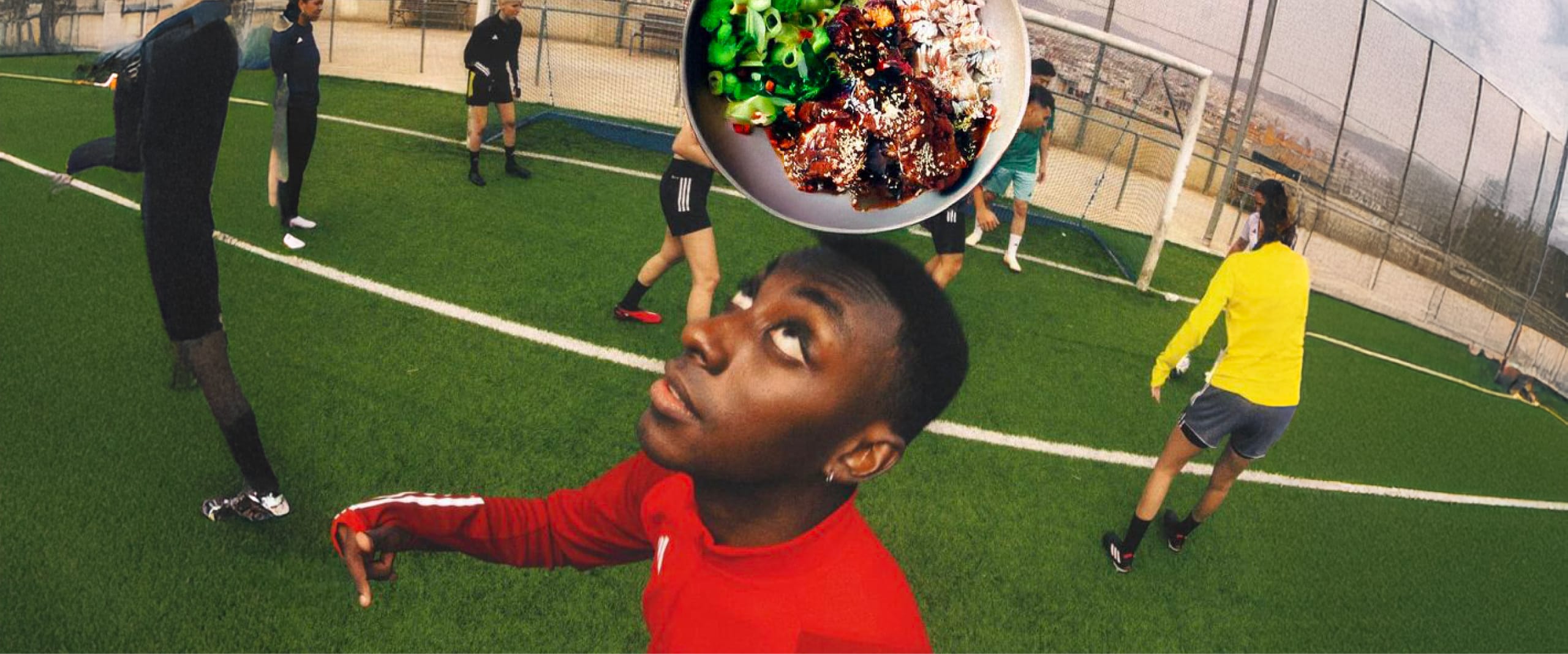
Hi, food lover!
Every athlete knows: performance starts before the race. Without a proper warm-up, you can’t achieve your best results.
Meetings, deadlines, brainstorms. It’s not a walk in the park; it’s a sprint. And just like in sports, you need fuel to perform.
– Why skipping lunch is like running on empty –
Sugary snacks and soft drinks might give you a short boost, but they crash just as fast. On average, sweets keep you satisfied for just 30 minutes. Compare that to nuts, which can sustain you for three hours or more. Big difference, for your body and your brain [1]. Without that midday fuel, your metabolism slows, your energy dips, and your focus fades. Skipping lunch doesn’t just leave a gap; it often leads to quick fixes.
And here’s the kicker: these “quick fixes” often contain empty calories – energy from sugar or unhealthy fats with little to no nutritional value. People who skip lunch tend to consume fewer total calories throughout the day, even when they try to make up for it later [2]. This means it doesn’t balance out; you’re still under-fueled overall. That means you’re not just eating less overall, you’re also missing out on essential nutrients your body actually needs.
– Lunch is your fuel window –
But lunch isn’t just fuel for your body, it’s a moment to step away from the screen. To recharge and connect with your colleagues. A real break boosts creativity, sharpens memory, and lowers stress. It’s recovery in action, just like an athlete cooling down between intervals.
That’s why we serve meals built for performance. No crashes. No cravings. Just steady energy to power through your day – with clarity at 2 PM, patience at 4, and creativity when it counts.
What’s your version of workday warm-up? Lunch, a walk, or a quick check-in? Ask a teammate what fuels them.
So, the next time you consider skipping lunch, ask yourself this: Would you start a race without doing your warm-up?
[1] University of Louisville School of Medicine. (n.d.). The Case for Lunch: Why Skipping Lunch Is a Bad Idea.
[2] Kirkpatrick, S. I., Dodd, K. W., Zimmerman, T. P., Kahleova, H., & Krebs-Smith, S. M. (2023).